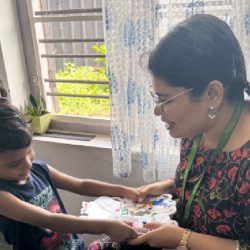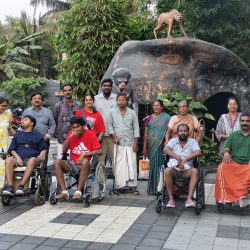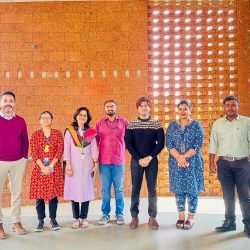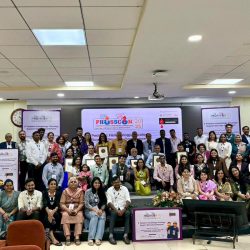Play Heals: Nurturing Hope and Joy Through Learn To Play
While attending the African Palliative Care Association Conference in Botswana in September this year, Pallium India’s Head of Strategic programs and Partnerships, Smriti Rana had the opportunity to discover the remarkable work being done by Learn To Play.
Moved by the thoughtfulness of the program, she invited the co-founder Priyanka Handa to share with our readers what the organisation does. We hope that you will be as inspired as we were.
Play Heals: Nurturing Hope and Joy Through Learn To Play
Every day across Africa, mothers are forced to choose between earning a living and providing nurturing care for their children. For families living in poverty, this choice can feel impossible. Research shows that children raised in hardship — especially those whose caregivers face mental health challenges — are up to four times more likely to experience socioemotional and cognitive delays.
In Botswana, where more than half of all children live in poverty, many grow up without access to quality early learning or safe spaces to simply be children. But it doesn’t have to be this way. At Learn To Play, we believe that play is not a luxury — it’s a lifeline. Play helps children heal, connect, and grow. It sparks resilience, confidence, and joy — even in the most challenging circumstances.
Our Approach
Learn To Play makes play-based early childhood education accessible across Africa. We establish community playgroups, support parents through our Parent Playbox, and integrate emotional wellbeing into early learning through The Mindful Way. Together, these programmes create nurturing ecosystems where children and caregivers thrive.
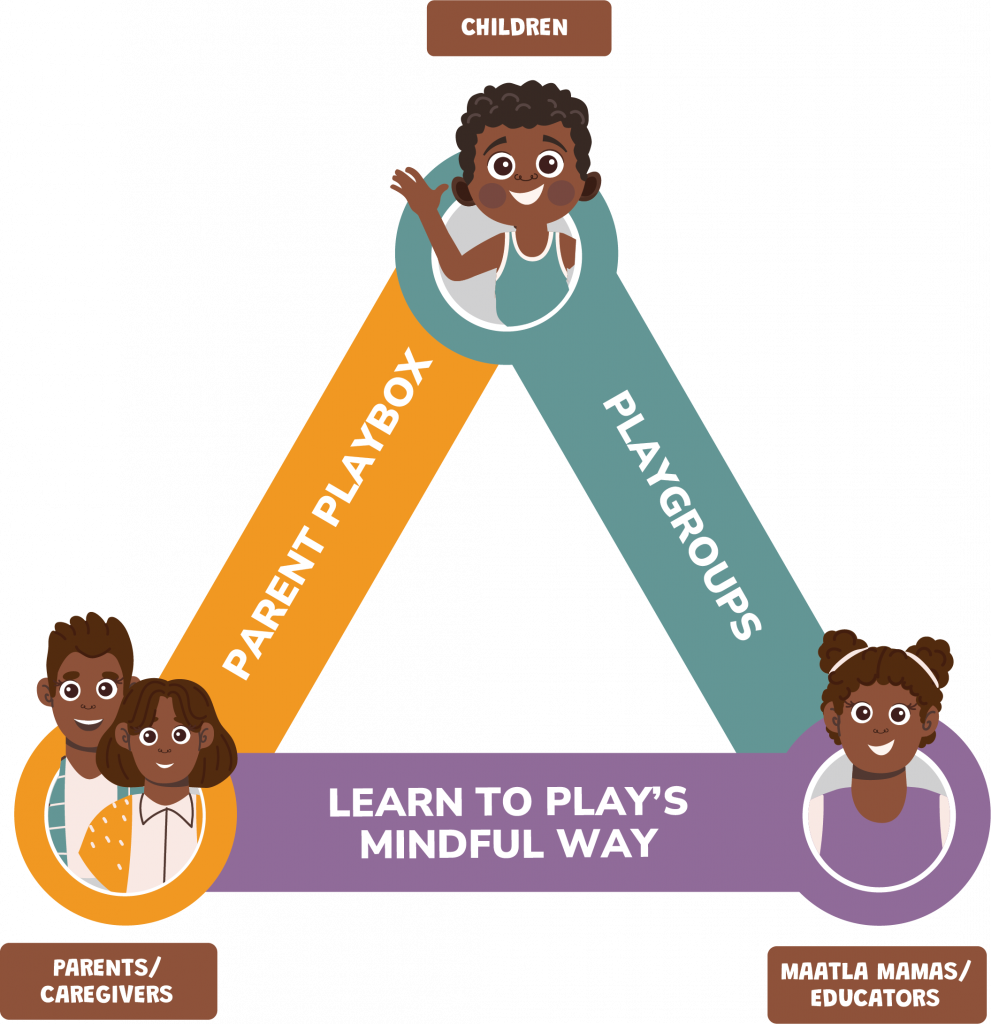
- Playgroups: Community-led and run by local women, our playgroups provide low-cost, high-quality early learning for children aged 3–6. Each day, over 800 children play, learn, and grow in these spaces — 93% of them entering primary school ready to learn.
- The Mindful Way: Traditional mindfulness asks children to sit still and focus inward — but young children regulate through movement, play, and connection. The Mindful Way turns mindfulness into a lived, playful experience. Through stories, guided activities, and games, children learn to notice their emotions, build resilience, and develop self-awareness — all while playing.
- The Community Parent Playbox: Many parents want to support their child’s learning but don’t know how. The Playbox, co-created with Kids Collab, brings play to life in homes and communities through 52 weeks of playful activities. Trained volunteers lead small parent-child groups, helping families rediscover the joy of connection and learning through play.
As one mother in Botswana shared:
“I used to think only children play. I never knew I could play with my child. Now, we are close. My child smiles more — and so do I.”
Play as a Pathway to Healing
Whether in poverty, displacement, or illness, children face realities no child should. But through play, they find expression, belonging, and hope. Play allows children to process trauma, connect with others, and rediscover a sense of safety in the world. For caregivers, it restores confidence and joy — powerful tools for healing in any circumstance, including palliative care.
At Learn To Play, we’ve seen firsthand how play transforms not just learning outcomes, but lives. It is where healing begins — in laughter, movement, and connection.
Join Us
Play has the power to change the story for children everywhere.
Join us in bringing joy, healing, and hope to more children across Africa. 🌍 Support our work or get in touch if you’d like to work together to bring play into your context: www.learntoplay.org

